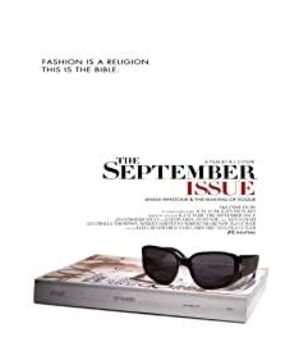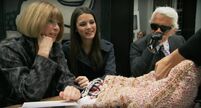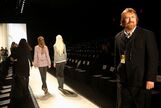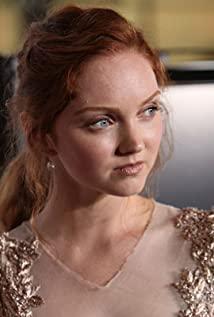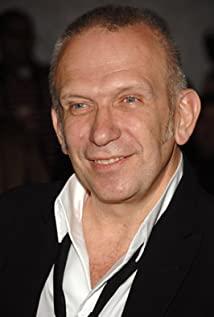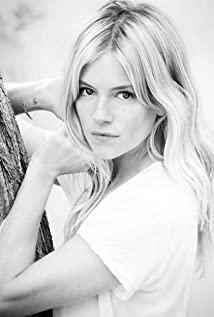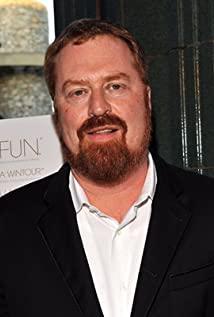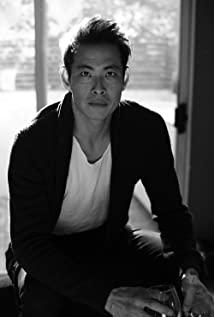At first, I couldn't understand why the director used such a large space to show the contradiction between Anna and Grace.
When I saw the end of the film, I suddenly realized that the director may be trying to use a neutral and euphemistic way to present the controversy carried by the protagonist of the documentary: Grace's highly artistic photos are often rejected by Anna because she is more "commercial"; The cameraman said "you should go to the gym", Grace would comfort him by saying "the model is perfect, we just need to be real ordinary people", which is Anna's "politically incorrect".
There is a certain emotional connection and sympathy between the documentary director and the protagonist. Otherwise, why choose him/her for the film? To show the disputed points euphemistically and neutrally through the conflicts between the protagonist and others, I think it is a very clever and decent way of presentation.
Why has Anna been able to stand for 20 years in the rapidly changing fashion circle and maintain a dominant position so far? I believe this is a question that many viewers are curious about. I would have expected the director to discuss more, but the film only shows sporadic reflections, such as supporting younger generations (scholarships for young designers), and sincerely caring for friends in the circle (urging Andrew to exercise to stay healthy) ). I think these two points are far from enough. Without further discussion on Anna's fashion sense, business ideas and business philosophy, the above questions have not been answered.
However, the director managed to capture the sad moment of the ice woman. She was furious at Mario Testino's unwillingness to shoot at the Colosseum, saying to the camera "When one day I can't hold back my anger, I'll retire". This is the inevitable resistance any leader will encounter when trying to take control, and it is especially painful for perfectionists. There are also siblings who are engaged in serious carriers such as caring for the disadvantaged/political commentary, and she worries that "they must think their profession is ridiculous". This is the value confusion brought about by being from an elite family.
I am always thinking. How much does the protagonist play a role in the success or failure of a biographical film/literature? What role should the director play? Is it enough to find enough shiny record objects?
Obviously I don't have an answer yet.
But Anna herself is obviously an excellent subject, and I didn't really get moved/inspired moments while watching the documentary, so I still think it's possible to dig further and present.
PS: The whole film is talking about the shooting process of hard photos. It can be seen that the text of the fashion magazine is really just a casual look...
View more about The September Issue reviews


